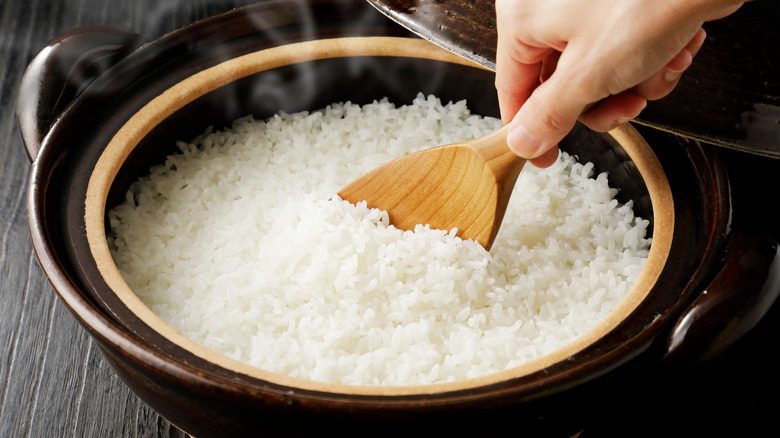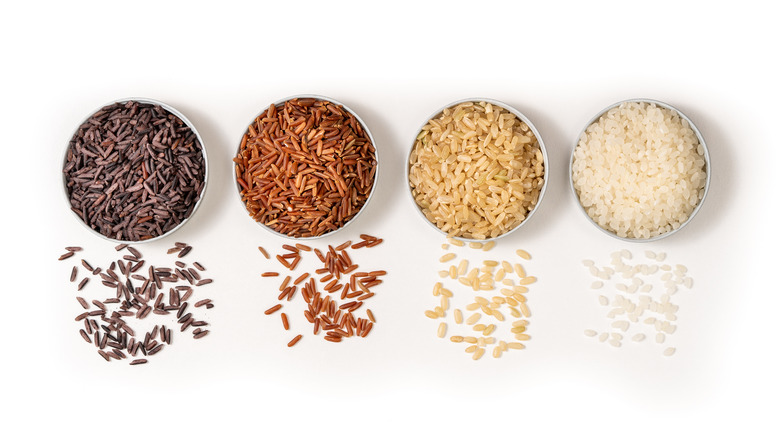Rice is a staple food across various cultures. Not only are these fluffy carbohydrates incredibly delicious, but rice is also highly adaptable. It comes in numerous varieties and colors, including white, brown, jasmine, red, wild, and even black (via Tasting Table). With so many rice types available, you might wonder: does rice expire? More importantly, what occurs if you consume expired rice? If you frequently stock up on this essential, here’s what you should know.
A 2019 study published in Food Science and Biotechnology suggests that the nutritional value of rice may decrease when it expires due to increased mold growth. Expired rice can become contaminated by various molds or fungi, such as aspergillus tritici and cladosporium cladosporioides. Additionally, mycotoxins can develop from these fungal contaminants. Consumption of mycotoxins may lead to symptoms like vomiting, food poisoning, abdominal pain, nausea, and an elevated risk of cancer, according to Healthline. Other symptoms, depending on the mycotoxin type, may impair the immune system and lungs, notes WebMD.
Even when cooked, some mold populations may persist. Another study published in the Journal of Food Protection indicates that the bacteria bacillus cereus can survive and proliferate after cooking. Bacillus cereus can lead to gastrointestinal issues, such as diarrhea and vomiting. It can also cause nausea and abdominal pain (per Healthline).
How to determine if rice has expired

Rice’s shelf life can vary based on its type and whether it’s cooked or uncooked, according to Healthline. To avoid eating expired rice, inspect it and ensure it has been stored at the appropriate temperature.
The U.S. Department of Agriculture (USDA) states that uncooked brown rice has a shelf life of six months from the manufacturing date if stored at 30 to 40 degrees Fahrenheit. At higher temperatures, the shelf life reduces to three months when stored between 50 and 70 degrees Fahrenheit. Before consuming brown rice, check the expiration date to ensure it’s safe to eat (via Healthline). Also, look for discoloration, slimy textures, and unpleasant odors.
The shelf life of other uncooked rice, like white, jasmine, basmati, wild, and arborio, is indefinite if stored properly (via StillTasty). To prolong its life, keep uncooked rice in an airtight container in a cool, dry place. To determine if this rice has spoiled, Healthline advises checking for bugs, color changes, and dampness. Look for mold and unusual textures as well. If you’re uncertain about the rice’s condition, it’s best to dispose of it.




